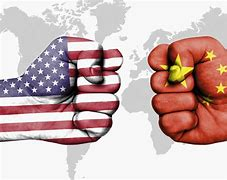How the ongoing U.S.-China tech tensions can split the internet
- Posted on October 20, 2020
- Technology
- By Glory

The tech and trade tensions between the United States has been ongoing for a long time as both nations struggle to become the world’s largest and most powerful economy.
The tensions which are mostly political have become a threat to supply companies doing business across both nations, especially technology-related. The threats have begun to shift deeper into the technology space and could likely affect the internet.
Over the years, there have been discussions about a possible internet split, or “splinternet” where a two-track internet could emerge. One part of the internet would be led by the United States and the other part by China.
While conclusions are yet to be made concerning the possible split, experts from “Beyond the Valley” podcast say that data has a significant role to play in the scale of all types of fracturing of the internet that is used in the present day.
“I think the data issue and data governance is really going to be the critical thing here in terms of how far… we get a split, splinternet, or some fragmentation of cyberspace,” said the head of the geo-technology practice at Eurasia Group, Paul Triolo.
The era of the splinternet is fast approaching as instances can already be seen in how China has blocked top American tech companies like Facebook and Google from operating in the region. Some American-owned popular apps that are being used around the world have also be banned in China. For example, China does not allow Amazon access into its region, instead, Chinese shoppers make use of Alibaba-owned Taobao or retail giant JD.com. WeChat also replaces WhatsApp as the official messaging app in China. The Chinese government also has the right to ask technology companies to censor all politically sensitive content.
The United States has not been left behind in cutting off China-based or China-owned apps. The most recent is the TikTok deal which had a ban placed on it by the Trump administration.
While all of these go on, there is still more to the splinternet that cutting off certain apps from the U.S. and China regions. It could dive deeper into other areas including standard rules that allow certain technologies to work together globally and transfer of data. Data transfer and data governance is a sensitive issue in most parts of the world.
Data governance and its threat to national security
As seen in the recent ban of the China-based TikTok by the Trump administration, the U.S. government accuses Chinese technology companies of posing as a threat to national security because they could wrongly handle American’s user data.
In the August 6 executive order to ban TikTok by President Donald Trump, he cited that the app collects “vast swaths of information” from Americans, and could likely get to the Chinese Communist Party. Although TikTok agreed that American-based Oracle will be in charge of handling U.S. data, conclusions are yet to be reached. A huge part of the deal emphasizes data localization—where data of citizens of a nation will be stored and processed there, and not in any other country.


Be the first to comment!
You must login to comment